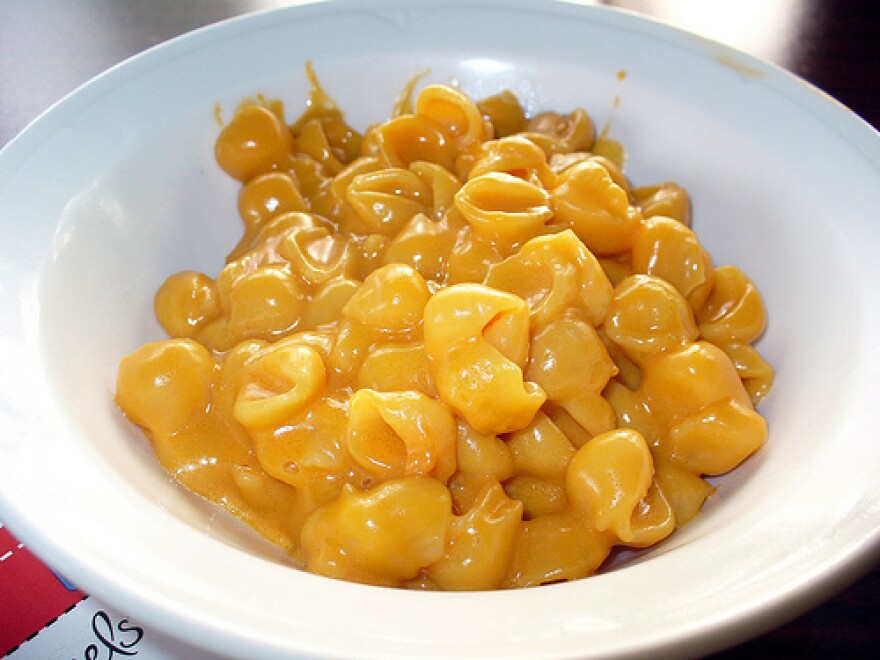This entry is one of our Mother’s Day contest winners. We asked readers for their favorite food memory about mom.
Growing up as one of the few Asians in Harrisburg, North Carolina, I always envied the American food the rest of my friends ate on a daily basis. While dreaming of gooey slices of pizza, fluffy mashed potatoes, and chicken smothered in gravy, I would frown and pick out limp, slimy specks of scallions from dishes of kimchee and guk with my chopsticks “Those green onions are good for you, and there are starving children in Africa!” my mother would scold. At least once a week, a fight would ensue as I insisted that my friends ate “good” food that I never did.

My complaint really was not about the quality of the nightly home-cooked dinners of steamed dumplings, Korean glass noodles, stuffed squid, or kalbi steaks. My mother was a terrific cook, making every dish from scratch, but somehow, these meals never seemed as special as a plate of bright orange macaroni and cheese served in my friends’ homes.
When I moved to Chapel Hill to begin my college career, I was eagerly anticipating daily indulgences of American cuisine. With my meal plan, every meal was an all-you-can eat smorgasbord of everything quintessentially American or, at least, Americanized “exotic” fare. Hamburgers, waffles, tacos, lasagna, corn on the cob, ice cream sundaes – all without scallions! I was living my butter-rich, starch-laden, all-American dream. However, what once was so wonderful, soon became bland, colorless, and frankly, boring. I found the dairy-rich foods to be incompatible with my lactose-sensitive Asian gut, and the carb-heavy dinners tasted one-dimensional. I missed the spices and heat and everything else that makes Korean cuisine complex and interesting.
Despite a childhood of fantasizing of escape from Cabarrus County, I was never happier to return home than that first semester break. My mom, who had re-entered the workforce at this point, rarely spent much time cooking any more, but she labored in the kitchen just for me those few days. Not a single morsel of American food entered my mouth that weekend, and I made sure to gorge myself on as much Korean food as possible. When I packed to make the drive back to Chapel Hill, the back of the car was piled with Tupperware containers and Ziplock bags full of enough food to last a couple of weeks.
The next semester, I cancelled my meal plan and decided to try my hand at grocery shopping and easy-to-prepare meals. Prior to this, my few experiences with cooking included baking a box of gingerbread cookie mix that produced what my family called burnt horse dung. I knew that even my science major would be insufficient in preventing food chemistry disasters and some expert advice would be required. During the first semester, I had barely called home, but now there was a need for regular consultations with my mother.
I had never been close to my mother as our regular bonding sessions ended once she finished teaching me how to read and ride a bike. Any attempts at conversations after that would almost always turn into an argument about my messy room, skipping church, and my lack of ambitions to become a doctor. These arguments usually included some variation of “You don’t love me!” from me and “Korean parents don’t gush over their children like idiots!” from her. However, when I called to ask her cooking questions, we would manage to have civil conversations that no longer ended in screaming and tears.
Had I known food could so easily transcend the differences between generations, culture, and values, I would have asked her to teach me to cook earlier. Once I grew older, I realized how, unlike her verbally expressive American counterparts, my mother truly did not know how to be demonstrative. I began to understand that her Korean upbringing wasn’t just an excuse she used and that open praise and adoration for her children really did not fit into her cultural vocabulary. Food was a second language for her to show how much she did love me and my siblings. Today, my mother still criticizes my over-seasoned soup and my improper knife skills. I shrug my shoulders and silently think how grateful I am that she cares enough to tell me so.



